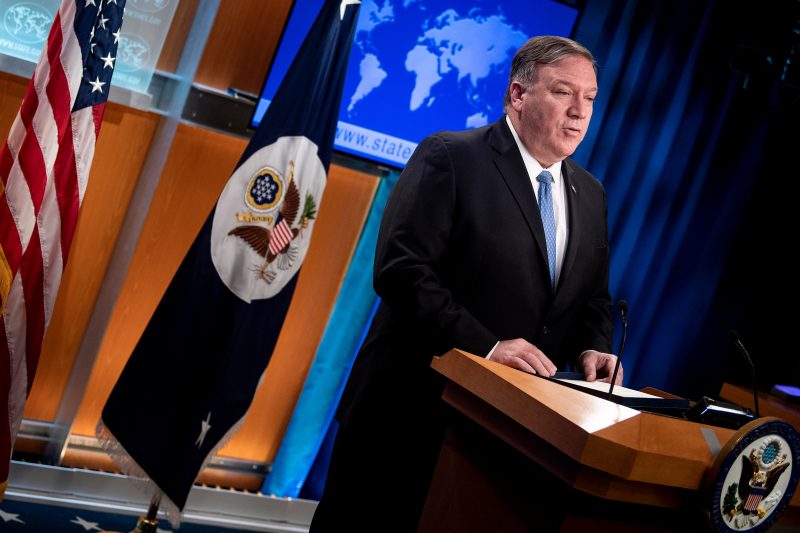EU, Canada warn of reprisals as US targets foreign interests in Cuba
US Secretary of State Mike Pompeo announced Washington will end routine wavers to the 1996 Helms-Burton act and allow for lawsuits over property seized by Cuba (Brendan Smialowski)
Brussels (AFP) – The European Union and Canada warned Wednesday of reprisals after the United States for the first time allowed lawsuits against foreign companies operating in Cuba, including EU and Canadian firms.
US Secretary of State Mike Pompeo announced Washington will on May 2 end routine wavers to the 1996 Helms-Burton act and allow for lawsuits over property seized by Cuba.
“The EU and Canada consider the extraterritorial application of unilateral Cuba-related measures contrary to international law,” they said in a joint statement from Brussels.
It was signed by EU foreign policy chief Federica Mogherini and Trade Commissioner Cecilia Malmstrom, along with Canadian Foreign Minister Chrystia Freeland.
“We are determined to work together to protect the interests of our companies in the context of the WTO”, the Geneva-based World Trade Organization.
“Our respective laws allow any US claims to be followed by counter-claims in European and Canadian courts,” the three officials said.
“The US decision to allow suits against foreign companies can only lead to an unnecessary spiral of legal actions,” they warned.
Mogherini and Malmstrom had previously sent a similar warning to Pompeo in a letter dated April 10, according to a copy of a letter obtained by AFP.
“Any person or company doing business in Cuba should heed this announcement,” Pompeo told reporters in the US.
Under the Title II provision of the Helms-Burton Act, any companies that operate in property seized by Cuba during Fidel Castro’s 1959 communist revolution could starting next month face lawsuits in US courts from the vast and politically powerful Cuban American diaspora.
– EU counter-claims threatened –
Pompeo called on all businesses that own buildings in Cuba to “fully investigate whether they are stolen in service of a failed communist experiment”.
In their letter, Mogherini and Malmstrom urged Pompeo to stick to what they said was an agreement on managing policy differences over Cuba under which the US waived Title III and the EU suspended a threatened case at the World Trade Organization against Washington.
They said they were calling on Washington “to maintain a full waiver of Title III for EU companies and citizens”, the letter said.
“Failing this, the EU will be obliged to use all means at its disposal, including in cooperation with other international partners, to protect its interests,” they said.
“The EU is considering a possible launch of the WTO case,” the letter added.
Mogherini and Malmstrom warned that “any claims in US courts would likely be followed by counter-claims by EU companies in EU courts”, according to their letter.
Kimberly Breier, the top US diplomat for Latin America, said the United States would not issue any exemptions to the new law.
But Breier said businesses would only be affected if they operate in properties seized from Cubans who have emigrated to the United States.
“I think the vast number of European companies will not have any concerns operating in Cuba,” she said.
Another senior US State Department official told reporters on condition of anonymity that “any European company, any American company, any company around the world that trafficks in property that was confiscated by the regime does have the possiblity of being hit by this legislation”.
But the official could “not give an assessment on how many companies that applies to”.
Disclaimer: Validity of the above story is for 7 Days from original date of publishing. Source: AFP.


